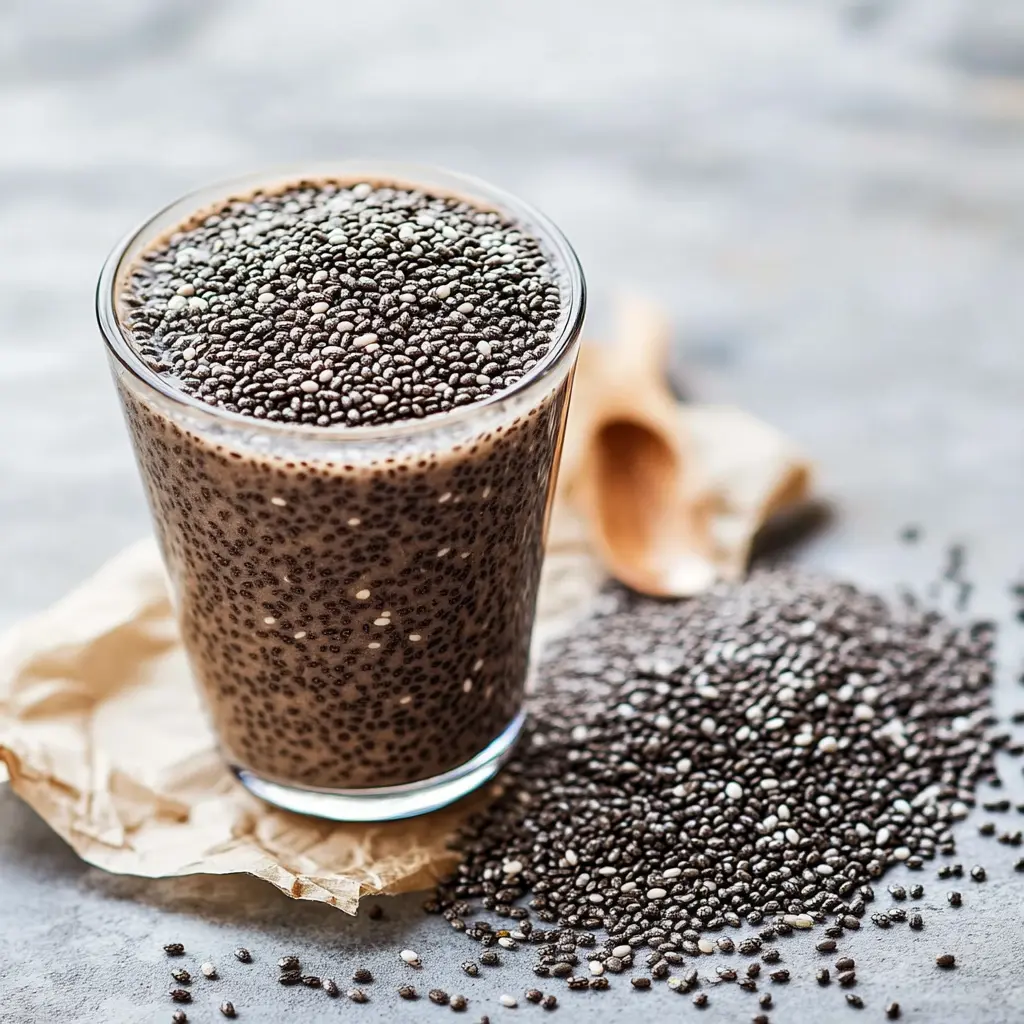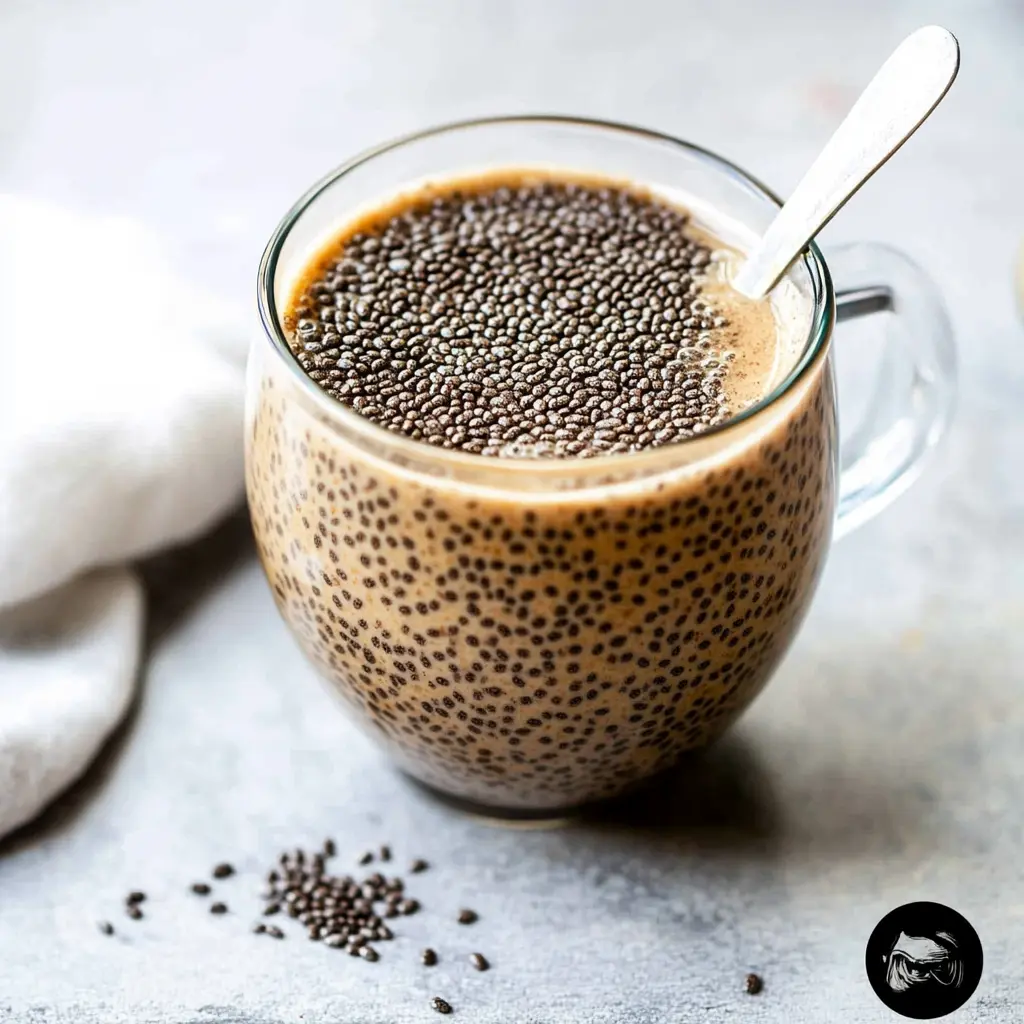Chia seeds have gained immense popularity due to their numerous health benefits and versatility in various recipes. Packed with essential nutrients, these tiny seeds are a staple in many diets. However, consuming chia seeds improperly or mixing them with certain ingredients can lead to potential health risks and diminish their nutritional value. This guide explores what not to mix with chia seeds, helping you make the most of their benefits while avoiding unnecessary complications.
Table of contents
The Basics of Chia Seeds
Chia seeds are small but mighty, rich in omega-3 fatty acids, fiber, and antioxidants. These seeds swell when mixed with liquids, forming a gel-like consistency that makes them perfect for smoothies, puddings, and baked goods. Despite their numerous advantages, chia seeds must be consumed correctly to prevent issues such as indigestion or reduced nutrient absorption.
Key facts about chia seeds:
- They are a source of complete protein, containing all essential amino acids.
- Their high fiber content supports digestive health.
- When soaked, they become more digestible and easier to incorporate into meals.

Understanding their properties is essential to avoid common pitfalls when consuming chia seeds. Explore whether chia pudding is good for you and learn how to maximize its benefits.
Potential Risks of Mixing Ingredients
Mixing chia seeds with the wrong ingredients can lead to digestive discomfort, reduced nutrient absorption, or unwanted chemical reactions. While these seeds are generally safe for most people, their interaction with certain foods may not always be beneficial.
Common issues caused by improper mixing:
- Gastrointestinal distress: Pairing chia seeds with highly processed or incompatible foods can irritate the gut.
- Nutritional interference: Some foods may inhibit the absorption of essential nutrients in chia seeds.
- Allergic reactions: Although rare, certain combinations can trigger food sensitivities.
Understanding what not to mix with chia seeds ensures a safe and effective way to incorporate them into your diet.
Dairy Products and Chia Seeds
While dairy products like milk and yogurt are often paired with chia seeds in recipes, not all combinations are ideal. The issue arises when chia seeds are combined with highly processed or lactose-heavy dairy products.
Why dairy might not work well:
- Lactose intolerance: Many individuals struggle to digest dairy, which can cause bloating when mixed with high-fiber chia seeds.
- Calcium absorption interference: Excess calcium from dairy may hinder the absorption of other essential nutrients in chia seeds.
While often combined with dairy, not all combinations are suitable. High-lactose dairy can cause bloating, especially when mixed with high-fiber chia seeds. For healthier options, discover how to enjoy chia seeds in balanced recipes.
Acidic Fruits to Avoid
Pairing chia seeds with acidic fruits such as citrus, pineapple, or kiwis can create a harsh digestive experience for some people. These fruits may not gel well with the natural soluble fiber in chia seeds, leading to stomach discomfort.
Risks of acidic combinations:
- Irritation of the digestive lining: The acidity can exacerbate issues like acid reflux when paired with chia seeds.
- Reduced nutrient synergy: Certain acids can interfere with the absorption of omega-3 fatty acids and other vital nutrients in chia seeds.
Instead, consider pairing chia seeds with less acidic fruits like bananas, apples, or berries for a more balanced and digestive-friendly combination.
Caffeine and Chia Seeds
Combining chia seeds with caffeinated beverages such as coffee, tea, or energy drinks might not be the best idea. While caffeine has its benefits, it can interfere with the hydration properties of chia seeds.
Issues with caffeine and chia seeds:
- Dehydration risk: Caffeine is a diuretic, which can offset the hydration benefits chia seeds provide.
- Increased digestive sensitivity: Caffeine can stimulate the digestive system, potentially causing discomfort when paired with chia seeds.

For better results, enjoy chia seeds with water, almond milk, or caffeine-free herbal teas.
Oil-Based Products
Oil-based products, including salad dressings and cooking oils, might reduce the nutritional absorption of chia seeds. The high-fat content in oils can create an imbalance when combined with the natural fats in chia seeds.
Why oil-based products should be limited:
- Caloric concerns: Adding oils to chia seed recipes can unnecessarily increase the calorie count.
- Nutrient interference: Excessive fats can slow down the digestive process, delaying nutrient absorption.
When incorporating chia seeds into salads or dressings, opt for light, water-based alternatives to maintain a healthy balance.
Processed Foods to Avoid
Processed foods, including packaged snacks, sugary cereals, and pre-made smoothies, are often loaded with preservatives and artificial flavors that clash with the natural purity of chia seeds.
Drawbacks of processed food combinations:
- Hidden additives: Processed foods may contain ingredients that reduce the effectiveness of chia seeds’ nutrients.
- Digestive strain: The combination of fiber-rich chia seeds and processed foods can overwhelm the digestive system.
Stick to whole, unprocessed foods when using chia seeds to maximize their health benefits.
High-Fiber Foods and Chia Seeds
Chia seeds are widely recognized for their high fiber content, making them a popular choice among health enthusiasts. However, pairing chia seeds with other high-fiber foods requires caution.
Understanding Fiber Overload
Consuming chia seeds with a fiber-rich diet can lead to digestive discomfort. Symptoms like bloating, gas, or constipation often occur when too much fiber is consumed without adequate water intake. The combination of chia seeds with foods such as beans, lentils, or whole grains may exacerbate these effects.
How to Balance Fiber Intake
- Hydration is key: Drink plenty of water when consuming high-fiber foods and chia seeds.
- Moderation: Limit portion sizes to prevent overloading your digestive system.
- Gradual introduction: Slowly increase fiber in your diet to allow your gut to adjust.
What Not to Mix with Chia Seeds?
Avoid consuming chia seeds alongside highly processed fiber supplements. These can overburden the digestive system and reduce the absorption of nutrients from chia seeds.
Spices and Chia Seeds
Adding spices to chia seed recipes may seem harmless, but some combinations can be problematic.
Spices That May Cause Issues
Certain spices, such as cayenne pepper, garlic powder, or turmeric, are known for their strong bioactive compounds. When consumed alongside chia seeds, these spices can irritate the digestive system, especially for individuals with sensitive stomachs.
Best Practices for Using Spices with Chia Seeds
- Mild spices: Opt for cinnamon or nutmeg, which pair well with chia seeds in recipes.
- Test small amounts: Introduce new spices gradually to assess compatibility with chia seeds.
- Cooking methods: Avoid overcooking spices with chia seeds, as high heat can degrade their nutritional benefits.
What Not to Mix with Chia Seeds?
Avoid using overly spicy or pungent spices with chia seeds, especially in concentrated forms like extracts or oils. These can trigger gastrointestinal discomfort.
Medications and Chia Seeds
Chia seeds are a superfood, but they can interact negatively with certain medications.
Potential Interactions with Medications
Chia seeds are high in fiber and omega-3 fatty acids, which may affect the absorption of some drugs. For example:
- Blood thinners: Chia seeds can amplify the effects of anticoagulant medications, increasing the risk of bleeding.
- Blood pressure medications: The natural ability of chia seeds to lower blood pressure can enhance the effects of these medications, leading to dangerously low levels.
Safe Practices
- Consult a doctor: Always discuss chia seed consumption with your healthcare provider if you’re on medication.
- Timing matters: Avoid taking medications and consuming chia seeds at the same time to reduce interaction risks.
What Not to Mix with Chia Seeds?
Avoid combining chia seeds with medications like warfarin or aspirin without medical advice, as this may result in adverse reactions.
Cooking Methods to Avoid
Chia seeds are versatile, but improper cooking methods can diminish their nutritional value or lead to unpleasant textures.
Common Mistakes
- Overheating: High temperatures can degrade the omega-3 fatty acids in chia seeds.
- Insufficient soaking: Cooking without soaking chia seeds first can make them difficult to digest.
- Microwaving: Exposing chia seeds to microwaves can alter their nutrient profile and texture.
Best Practices for Cooking with Chia Seeds
- Low-heat methods: Use low to medium heat to preserve nutrients.
- Pre-soak: Always soak chia seeds to ensure proper hydration and digestion.
- Incorporate wisely: Add chia seeds to recipes at the end of cooking for maximum nutritional retention.
What Not to Mix with Chia Seeds?
Avoid pairing chia seeds with frying oils or cooking them at high temperatures, as this diminishes their health benefits.
How to Safely Pair Chia Seeds
Properly pairing chia seeds with other foods enhances their nutritional value while minimizing risks.
Best Food Pairings
- Hydrating ingredients: Combine chia seeds with water, milk, or smoothies to ensure they expand properly.
- Balanced meals: Pair chia seeds with fruits, vegetables, and lean proteins for a complete meal.
- Nutrient boosters: Add chia seeds to nutrient-dense foods like yogurt or oatmeal.
Precautions
- Portion control: Stick to recommended serving sizes to avoid digestive issues.
- Timing: Space out chia seed consumption throughout the day to prevent overloading the gut.
What Not to Mix with Chia Seeds?
Avoid combining chia seeds with dehydrating foods or beverages, such as coffee or alcohol, as this reduces their effectiveness and may lead to digestive discomfort.
For more tips on incorporating chia seeds into a daily routine, explore whether it’s okay to eat chia pudding every morning.
FAQs
Are chia seeds safe for everyone?
Chia seeds are generally safe, but individuals with food allergies, digestive issues, or on specific medications should consult a healthcare provider.
Can chia seeds cause digestive issues?
Yes, consuming too many chia seeds without sufficient water may lead to bloating or constipation.
What not to mix with chia seeds?
Avoid mixing chia seeds with alcohol, fiber supplements, or medications like blood thinners without professional advice.
How can I maximize the benefits of chia seeds?
Soak them properly, pair with hydrating ingredients, and consume in moderation.
Conclusion
Chia seeds are a versatile and nutrient-rich superfood, but improper combinations can reduce their benefits or cause health issues. By understanding what not to mix with chia seeds and how to pair them safely, you can enjoy their full potential. Always prioritize hydration, moderation, and compatibility with your dietary needs for the best results.

